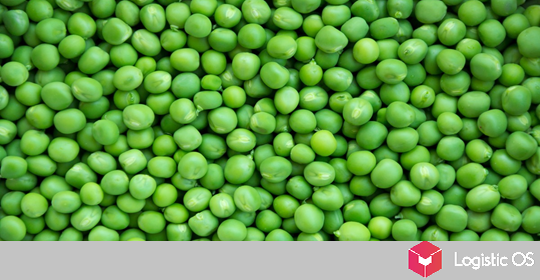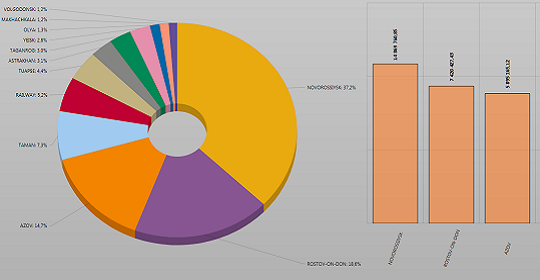According to the latest data, winter crops have already been sown on 15 million hectares of Russia’s 20 million hectares.
In the next two weeks, it should become clear whether Russian farmers will be able to approach the planned 20 million hectares of winter crop sowing.
Currently, winter wheat has been sown on approximately 13 million hectares, rapeseed has occupied approximately 800,000 hectares, and barley currently accounts for 300,000 hectares. Moreover, we are seeing growth for all of wheat, barley, and rapeseed compared to 2024 figures.
The only crop showing negative growth is winter rye. Currently, 430,000 hectares have been sown, which is 70,000 hectares less than last year.
Weather factors will determine whether farmers will be able to fulfill their plan.
Several regions of the Russian Federation are currently experiencing rain, while others are expected to see it soon. Unfavorable weather conditions could negatively impact the pace of sowing and even disrupt its completion.
Nevertheless, experts expect that farmers will generally be able to plant as close to the planned acreage as possible.
It is also noted that the pace of sowing this year has been higher than in the previous year.
Particular emphasis is currently being placed on Russian-bred seeds.
As is known, the Ministry of Agriculture has developed a plan according to which agricultural producers should switch almost entirely to domestically produced products in the coming years. This process is currently underway, although it must be acknowledged that for some items, it is still far from complete.
As for fertilizers, the situation is much more optimistic.
«All existing quantitative and price regulation mechanisms allow us to fully provide farmers with affordable mineral fertilizers.
I would also like to point out that agricultural producers are increasingly using innovative complex fertilizers produced by Russian manufacturers,» noted Russian Minister of Agriculture Oksana Lut.
At the same time, Russian farmers are actively modernizing their equipment.
This includes implementing cutting-edge technologies, including, for example, unmanned vehicles that do not require human intervention.
It is expected that the transition to such innovations will help increase labor productivity, reduce production costs, and partially address the labor shortage that currently plagues Russian farmers.

